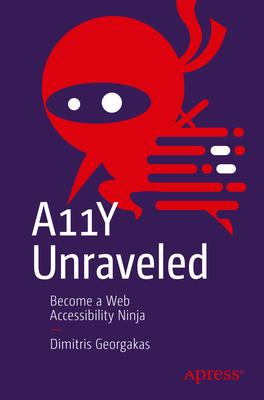Make designing and developing accessible websites fun and straightforward by deciphering information that is often confusing. This book examines how web professionals can ensure a website is as accessible as it can be, meeting the needs of its audience.
The main focus is on web accessibility and, WCAG 2.1 and 2.2 guidelines: what they are, who they are for, and what can be done from a design point of view to make the lives of the users easier. In reviewing the fundamentals, emphasis will be given on what disabilities could potentially prevent users from getting the information they need and what can be done to help them. This is achieved by breaking down web design and development terms and practices, such as web accessibility, color contrast, typography, how to design specific components like carousels, forms, and so on.
Each chapter features design examples presented in a clear and concise manner. Each design element is divided into different components, highlighting exactly what helps with what, showing how a website needs to be designed for the benefit of its people. A11Y Unraveled also reviews the current laws and legislations that govern web accessibility in different parts of the world.
What You'll Learn
- Discover how people perceive information on the web, and how that might create barriers in communication.
- Review different disabilities or limitations that prevent users from accessing web information and how to address them.
- Design an accessible website for specific disabilities through practical examples.
- Understand how different web design components affect the user.
- Study current web accessibility legislation, avoiding difficult to understand lingo.
Main audience would be digital and web professionals (mainly designers but developers can benefit as well). It can also help business owners who want to ensure their websites are adhere to accessibility standards.
